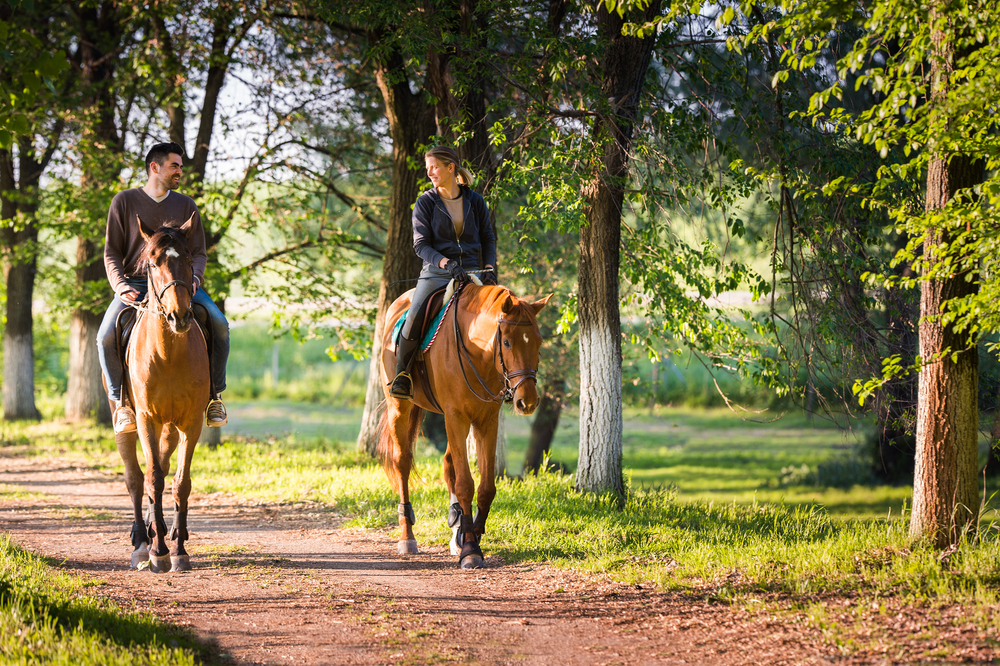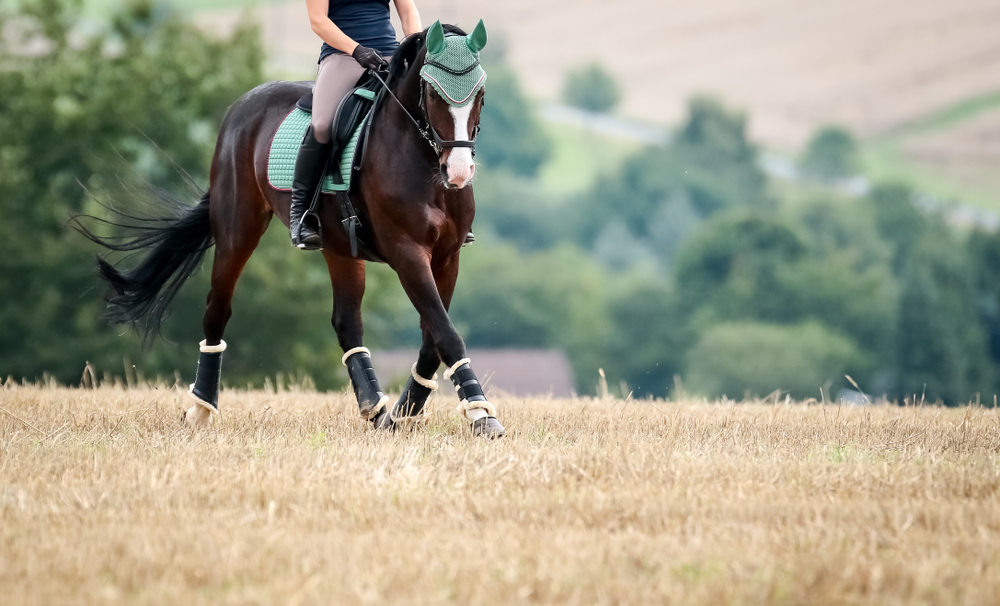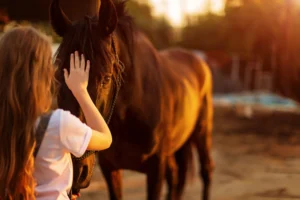In 2021, Virginia saw 2,230 opioid overdose deaths, accounting for 85% of all drug overdose deaths in the state. Addiction requires a personalized approach for anyone looking to achieve long-term sobriety. One way of personalizing addiction treatment is with holistic therapies, which focus on physical, mental, and spiritual aspects of the person struggling with the addiction. Equine therapy, also known as equine-assisted therapy (EAT), is a form of experiential treatment that involves interactions between patients and horses. This therapy has been used to aid various psychological and physical issues, including addiction.
What is Equine-Assisted Therapy?
Equine therapy includes a range of treatments that involve activities with horses and other equines to promote human physical and mental health. When it comes to addiction, equine-assisted therapy is often part of a broader treatment program that includes more traditional therapeutic methods such as cognitive-behavioral therapy (CBT) and group counseling. The therapy sessions are typically guided by a professional who specializes in EAT alongside a mental health professional.

The Benefits of Equine Therapy in Addiction Treatment
Equine therapy is a progressive approach for addiction treatment, offering a unique blend of physical activity, emotional engagement, and therapeutic interaction with horses to aid recovery and healing. The activities involved in equine therapy, such as grooming, feeding, and riding, not only encourage responsibility and discipline but also enhance mindfulness and emotional awareness. These factors are crucial in treating addiction, where developing new, healthy coping mechanisms and rebuilding trust and social skills are essential for long-term recovery. Some of the benefits of using equine therapy in addiction treatment include:
- Building Emotional Awareness: Horses are highly sensitive animals and can mirror the emotions of the handler or rider. For individuals recovering from addiction, working with horses can help increase their awareness of their own emotions and those of others around them. This heightened awareness is crucial for the development of emotional intelligence, which is often compromised in individuals struggling with substance use disorders.
- Enhancing Communication Skills: Non-verbal communication is a significant component of interacting with horses. Patients learn to communicate their intentions clearly through body language and to interpret the horse’s responses. These skills are vital in human relationships, which are often strained in individuals dealing with addiction.
- Promoting Responsibility: Taking care of a horse requires a significant amount of responsibility, which can be empowering for individuals in recovery. The routine tasks associated with equine care, such as grooming and feeding, help develop a sense of responsibility and routine, which are important for individuals trying to overcome addiction.
- Reducing Stress and Anxiety: Interactions with horses have been shown to reduce stress levels in humans, primarily through the increase of oxytocin, a hormone that promotes feelings of bonding and calmness. The physical activity involved in riding and caring for horses can also reduce anxiety and help in managing stress more effectively.
- Building Confidence and Self-Esteem: Learning new skills and mastering them, such as horseback riding, can significantly boost self-confidence and self-esteem. For many recovering addicts, low self-esteem is a common issue, and improving this aspect can be pivotal in the recovery process.
The Success of Equine Therapy
The therapeutic impact of equine therapy lies in its ability to provide immediate feedback through the horse’s reactions. Horses react differently to different emotional states and behaviors of humans; they often mirror these emotions and behaviors, providing the clients with real-time feedback on their actions or emotional states. This mirroring can help individuals recognize and alter negative patterns.
The bond formed with the horse can serve as a bridge to reconnect with emotions and relationships that may have been damaged due to addiction. The non-judgmental nature of an animal combined with the physical and emotional safety of the environment can foster a safe space for individuals to open up and explore difficult emotions and experiences.

6 Things to Consider When Using Equine Therapy for Addiction Treatment
Participating in equine therapy, while highly beneficial, involves several considerations to ensure the safety, effectiveness, and suitability of the therapy for individuals involved. Here are key factors to consider:
- Suitability and Readiness: Before beginning equine therapy, an assessment by a qualified therapist is necessary to determine if this type of therapy is suitable for the individual’s specific needs and current state of health. Participants should be in a stable emotional and physical condition to handle the interaction with horses. This therapy requires a certain level of physical activity and emotional engagement that might not be suitable for everyone.
- Safety: Sessions should always be conducted under the supervision of certified professionals trained in both equine management and therapeutic practices. Using the right safety gear, such as helmets and appropriate footwear, is crucial to prevent injuries. While equine therapy is generally safe, there is always a risk involved when working with large animals. Participants should be made aware of these risks and how to minimize them.
- Program Specifics: The objectives of the equine therapy program should align with the participant’s overall treatment goals. Each session should be tailored to meet these goals, whether they are focused on building confidence, improving communication, or enhancing emotional regulation. Different activities can be included, such as grooming, feeding, leading, and riding horses. The choice of activities should consider the participant’s comfort level and therapeutic needs.
- The Role of the Horse: Not all horses are suitable for therapeutic work. The animals chosen should be well-trained, calm, and accustomed to interacting with different people. The welfare of the horses is paramount. This includes proper care, handling, and ensuring they are not overworked. A stressed or overburdened horse cannot effectively contribute to therapeutic goals.
- Integration with Other Therapies: Equine therapy should be part of a broader treatment plan. It works best when integrated with other therapeutic modalities like cognitive-behavioral therapy, group therapy, and medication management. The effectiveness of the therapy should be evaluated continuously to make necessary adjustments and ensure that it remains aligned with the treatment objectives.
- Logistics: Access to a suitable facility that offers equine therapy can be a barrier for some. Consider the location and the frequency of sessions needed. Understanding the cost and whether it is covered by insurance is also important, as equine therapy can be expensive.
Including Equine Therapy in Addiction Treatment
Equine therapy offers a unique and effective approach to addiction treatment, providing benefits that complement traditional therapies. Great Falls Wellness understands how equine therpay helps build crucial skills and qualities such as emotional awareness, responsibility, communication, and self-esteem. Our holistic approach to personalized drug addiction treatment includes complementary treatments like equine-assisted therapy, yoga, and more. To learn more about Great Falls Wellness and our approach to addiction treatment, call us today.

